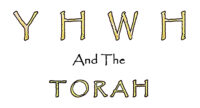1 And the lot for the tribe of Menashsheh, for he was the first-born of Yosĕph, was: for Maḵir the first-born of Menashsheh, father of Gil’aḏ, because he was a man of battle, therefore he had Gil’aḏ and Bashan.
2 And for the rest of the children of Menashsheh for their clans there was: for the children of Aḇi’ezer, and for the children of Ḥĕleq, and for the children of Asri’ĕl, and for the children of Sheḵem, and for the children of Ḥĕpher, and for the children of Shemiḏa. These were the male children of Menashsheh son of Yosĕph according to their clans.
3 But Tselapheḥaḏ son of Ḥĕpher, son of Gil’aḏ, son of Maḵir, son of Menashsheh, had no sons, but only daughters. And these were the names of his daughters: Maḥlah and No’ah, Ḥoḡlah, Milkah and Tirtsah.
4 And they came near before El’azar the kohĕn, before Yahoshua son of Nun, and before the rulers, saying, “𐤉𐤄𐤅𐤄 commanded Mosheh to give us an inheritance among our brothers.” So he gave them an inheritance among their father’s brothers, according to the command of 𐤉𐤄𐤅𐤄.
5 And ten portions fell to Menashsheh, besides the land of Gil’aḏ and Bashan, which were beyond the Yardĕn,
6 because the daughters Menashsheh received an inheritance among his sons. And the rest of Menashsheh’s sons had the land of Gil’aḏ.
7 And the border of Menashsheh was from Ashĕr to Miḵmethath, which faces Sheḵem. And the border went up to the right to the inhabitants of Ĕyn Tappuaḥ.
8 The land of Tappuaḥ belonged to Menashsheh, but Tappuaḥ on the border of Menashsheh belonged to the children of Ephrayim.
9 And the border went down to the wadi Qanah, southward to the wadi. These cities of Ephrayim were in the midst of the cities of Menashsheh, but the border of Menashsheh was north of the wadi, and it ended at the sea.
10 Southward it was Ephrayim’s, and northward it was Menashsheh’s, and the sea was its border, and they reached to Ashĕr on the north and to Yissasḵar on the east.
11 And in Yissasḵar and in Ashĕr, Menashsheh had Bĕyth She’an and its towns, and Yiḇle’am and its towns, and the inhabitants of Dor and its towns, and the inhabitants of Ĕyn Dor and its towns, and the inhabitants of Ta’anaḵ and its towns, and the inhabitants of Meḡiddo and its towns – three of the heights.
12 But the children of Menashsheh were unable to drive out the inhabitants of those cities, for the Kena’anites desired to dwell in that land.
13 And it came to be, when the children of Yisra’ĕl were strong, that they put the Kena’anites to compulsory labour, but did not utterly drive them out.
14 And the children of Yosĕph spoke to Yahoshua, saying, “Why have you given us but one lot and one portion to inherit, seeing we are a great people whom 𐤉𐤄𐤅𐤄 has baraḵ until now?”
15 And Yahoshua said to them, “If you are a great people, go up to the forest and clear a place for yourself there in the land of the Perizzites and the Repha’ites, since the hill country of Ephrayim is too narrow for you.”
16 Then the children of Yosĕph said, “The hill country is not enough for us, and all the Kena’anites who dwell in the land of the valley have chariots of iron, both those who are of Bĕyth She’an and its towns and those who are of the Valley of Yizre’ĕl.”
17 And Yahoshua spoke to the house of Yosĕph, to Ephrayim and to Menashsheh, saying, “You are a great people and have great power, you are not to have one lot,
18 for the hill country shall be yours. For though it is a forest, you shall cut it down, and its farthest limits shall be yours. For you are to drive out the Kena’anites, though they have iron chariots and are strong.”
